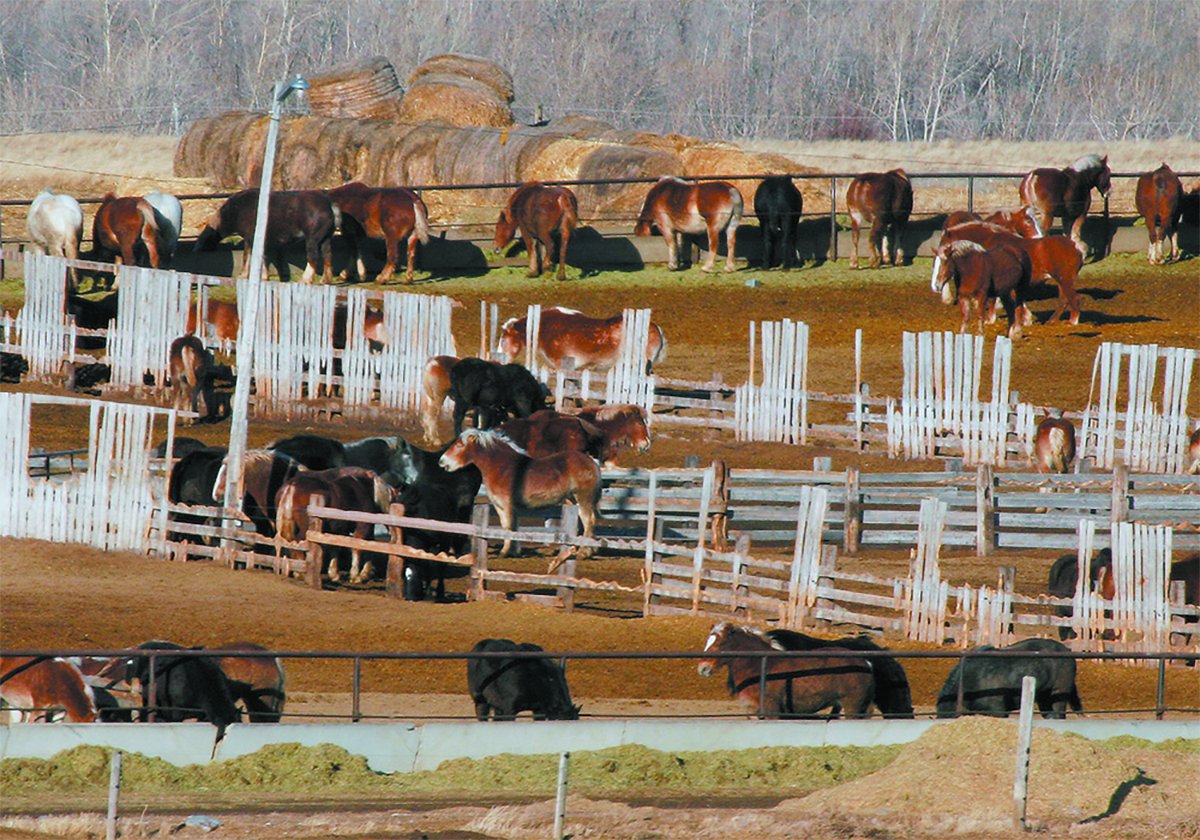DELIA, Alta.- Delia is one of those nice prairie towns everyone wishes they were from.
It’s a tightly knit community where the neighbours have fun together and weep together.
The inferno that destroyed Delia’s main grain elevator in the early morning of Nov. 20 scarred their hearts.
“When I heard the elevator was on fire, my hair on my body stood up,” said farmer Cindy Christensen, who stood watching fire crews blast dugout water across the smoldering piles of canola and high into the remaining elevator bins to extinguish hot spots that continued burning well into the afternoon.
Read Also

Canada’s slaughter horse industry lacks transparency
The lack of clear reporting and public access to data keeps the industry largely hidden, leaving questions about humane treatment and traceability unanswered.
Owned by Agricore United, it was the largest of three elevators in this farming village of 208 people north of Drumheller. The elevator burned into a crumbling ruin, the office melted and 5,000 tonnes of grain waiting to be loaded into 29 hopper cars were lost.
Farmers standing well back speculated the elevator is not going to be rebuilt. And they wondered how much longer towns like theirs can survive in a world of big deals and big mergers where centralization and growth are on every corporate agenda.
For village administrator Janna Clark, the loss had her worrying about what might have been. The fire could have been much worse and if the wind had been from a different direction, the entire village would have been in flames before anyone could stop it.
“Thank goodness the wind wasn’t too strong or we would have had a fire all the way to Hanna,” she said outside a makeshift command centre where women brought sandwiches and home baking for the 120 firefighters who came from nine different communities to help.
Ironically, Delia is fundraising to buy a new fire truck and pumper unit.
Wondering what might happen to her in the next few days, Kate Raffan never left the site that day. Her bungalow is beside the burning elevator. Home alone with her cat on Nov. 19, she was awakened from a sound sleep by a pounding noise on her windows. Fearing someone was trying to break in, she did not answer. Finally, she went to the front door just as firefighters were preparing to smash through with axes to rescue her.
“If they hadn’t insisted I leave, I could have fried and never known, I’m such a sound sleeper,” she said.
Once outside she saw a wall of flames roaring into the sky. Pieces of debris larger than dinner plates flew past her house, landing on the roof of her neighbours’ barn.
“It was raining chunks of ash,” she said.
She had to leave immediately in her pajamas and was able to sneak back home later for clothes and a quick phone call to let her husband know what had happened. Friends were taking her in until she could return home.
Firefighter Lorne Thompson said the elevator would be demolished. Jets of water smashed through weakened walls to bleed the last of the grain out of each bin to prevent more fires from starting in hot spots. Flare-ups were expected to continue for several days.
Total losses on the main facility built in the early 1960s are estimated at $2.5 million, said Agricore United spokesperson Phil Hyde. The elevator held 165,000 bushels of wheat, barley, durum, canola and flax, worth about $750,000. The facility was insured against fire.
Cause of the fire is still under investigation.
The grain company hopes to salvage some of the grain once the wreckage of timber and twisted metal has been cleared away.
“The grain probably received more water damage than fire damage,” Hyde said from the Calgary office.
Staff at the main facility will work out of a nearby smaller Agricore United elevator. A private person owns another elevator farther down the track.
“It’s not a nice experience for anyone. The staff is very attached to their facility and to the community,” Hyde said.

















